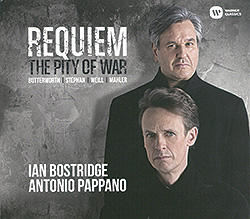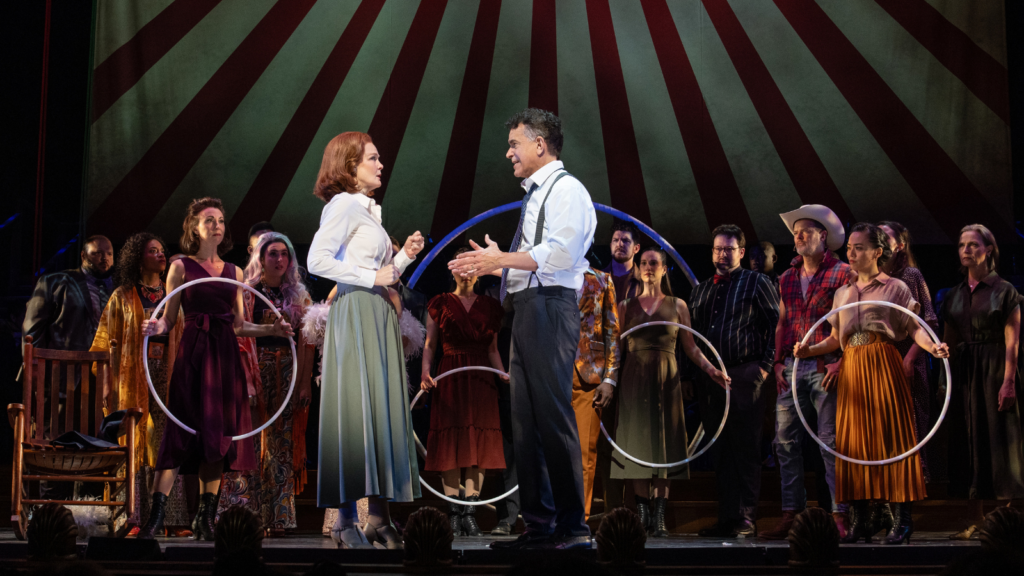The Kurt Weill Foundation presents an occasional list of recent publications in various media pertaining to Kurt Weill, Lotte Lenya, and Marc Blitzstein. Please suggest additions and corrections to webmaster@kwf.org.
SCORES
Lied vom blinden Mädchen (Lied vom weißen Käse). Vocal score of song by Weill and Günther Weisenborn (1931) with English translation by Michael Feingold. New York: European American Music, c2018 (EA 854; ISBN: 978-1-627218-903-7).
CD’s

The Cradle Will Rock, Saratoga Opera cast recording, John Mauceri, conductor. Bridge Records 9511 A/B. (Blitzstein’s original orchestrations.)
Requiem: The Pity of War, Ian Bostridge, tenor, Antonio Pappano, piano. Warner Classics 0190295661564. (Includes Four Walt Whitman Songs.)
Portraying Passion: Works by Weill, Paus, Ives, Tora Augestad, mezzo-soprano, Oslo Philharmonic, Joshua Weilerstein, conductor, LAWO LWC 1164. (Includes Die sieben Todsünden.)
Kurt Weill’s Songs. Various artists; compilation of popular and jazz recordings. 3-CD set. Frémaux & Associés FA 5695.
Bye Bye Berlin, Marion Rampal, vocals, Quatuor Manfred, Raphaël Imbert, saxophones, Harmonia Mundi HMM 902295. (Includes songs and the third movement of the String Quartet in B Minor.)
September Songs, Thomas Allen, baritone; Stephen Higgins, piano. Champs Hill Records CHRCD 144. (Includes “My Ship” and “September Song”).
An Enchanted Evening on Broadway with Earl Wrightson. Sepia 1332. (Includes “Lost in the Stars” and “My Ship.”)
Ben Bagley’s Alan Jay Lerner Revisited. Blossom Dearie, Dorothy Loudon, Jerry Orbach, et al., Norman Paris, musial director. Kritzerland KR 20034-1. (Reissue of 1983 album. Includes “Progress,” “Love Song,” Economics,” Mister Right,” This Is the Life,” “I’m Your Man.”)
Mystic Dance. Amira Kheir, vocals. Sterns Music STCD1129. (Includes “Speak Low.”)
The Oscillating Revenge of the Background Instruments. ORBI. Bis Records BIS-2297. (Includes “Alabama-Song.”)
BOOKS
Giner, Bruno. Kurt Weill. Paris: Editions Bleu nuit, 2019.
Aufricht, Ernst Josef. And the Shark, He Has Teeth: A Theater Producer’s Notes. Translated by Benjamin Bloch. Rochester: Camden House, 2018.
Fischer, Ulrich. Kurt Weill und das Urheberrecht: der andere Dreigroschenfilm-Prozess. Berlin: LIT-Verlag, 2018. (series: Rechtsgeschichte und Rechtsgeschehen – Kleine Schriften; Bd. 48)
Hart, Heidi. Music and the Environment in Dystopian Narrative: Sounding the Disaster. Cham, Switzerland: Palgrave Macmillan, 2018.
Steinthaler, Evelyn. Mag’s im Himmel sein, mag’s beim Teufel sein: Stars und die Liebe unter dem Hakenkreuz. Vienna: Kremayr & Scheriau, 2018.
Thöns, Inge and Herbert Blank. Librairie au Pont d’Europe: die erste Exilbuchhandlung in Paris. Göttingen: Wallstein, 2018. (Includes autographs of Weill and Lenya from guest book.)
ARTICLES
Grosch, Nils. “Zwischen Avantgarde und populärer Kultur der Weimar Republik: Musik in der Novembergruppe und bei der ‘Deutsche Kammermusik’ Donaueschingen.” Published in Novembergruppe 1918: Studien zu einer interdisziplinären Kunst für die Weimarer Republik (Münster: Waxmann, 2018), p. 113-130.
Webber, Christopher, “Sing When You’re Winning,” Opera 69.7 (July 2018): 811-816.
VIDEOS
Babylon Berlin. Seasons 1-2 of German television series. Universum Film UFO8437.
L’opéra de quat’ sous. Feature film (1931) directed by G.W. Pabst; starring Albert Préjean, Florelle, et al. No publisher.


